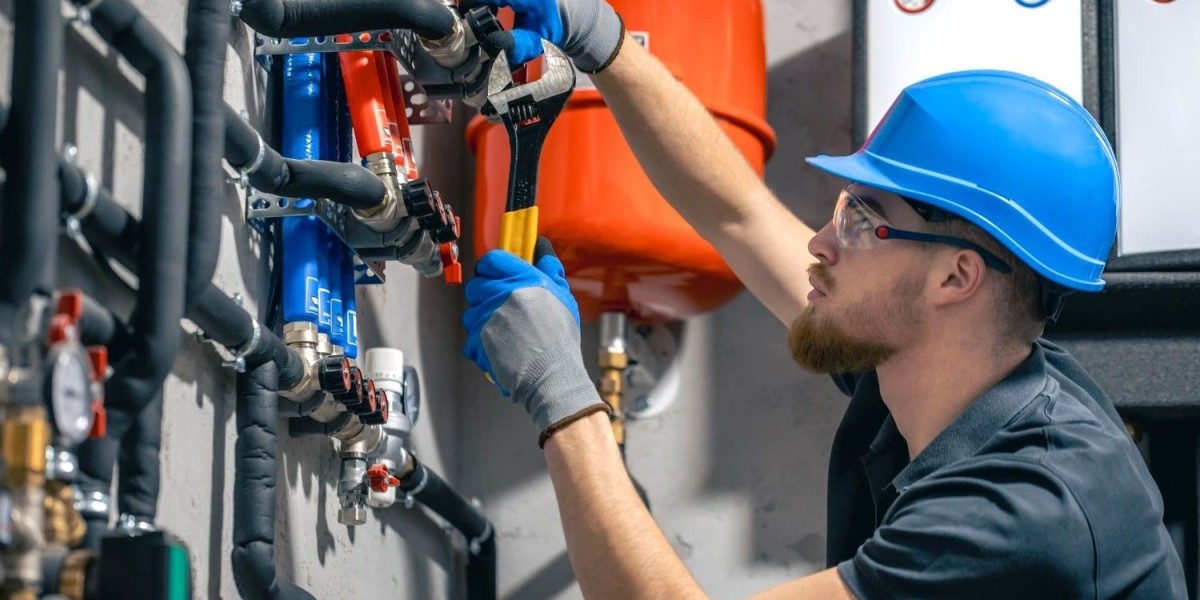Property development at scale requires the precise coordination of countless skilled trades. Among these, heating engineers play a role that is often underestimated yet absolutely crucial. They are responsible for designing, installing, and maintaining heating systems that allow large-scale buildings to function safely, efficiently, and in compliance with modern regulations.
From residential housing estates to commercial office complexes, heating engineers ensure that occupants enjoy consistent comfort while property owners benefit from reliable, long-lasting systems. In this blog, we examine the many responsibilities heating engineers take on in large-scale developments. We also highlight how they collaborate with other trades, contribute to sustainable construction practices, and ensure projects meet essential safety standards.
Planning and System Design
Every large-scale property development begins with planning, and heating engineers are deeply involved in this phase. Working closely with architects, contractors, and project managers, they design heating solutions that meet the specific requirements of the site.
The design stage involves several critical considerations:
- System capacity – Ensuring the heating system can provide consistent warmth across numerous units without strain.
- Energy efficiency – Selecting systems that reduce energy consumption and align with environmental targets.
- Compliance – Designing systems in accordance with building regulations and safety standards.
- Scalability – Ensuring the infrastructure can support potential expansion or future upgrades.
Large-scale projects often prioritise sustainability. Heating engineers factor in renewable technologies such as heat pumps, biomass systems, or solar thermal energy. The planning phase sets the foundation for a system that not only meets present needs but is also adaptable to future innovations.
Installation and Integration
Once the design is finalised, heating engineers lead the installation phase. This stage requires careful coordination with multiple trades to ensure all systems are seamlessly integrated.
Heating engineers install boilers, pumps, radiators, underfloor heating, and associated controls, ensuring these components function efficiently as part of the wider mechanical infrastructure. At the same time, they collaborate with plumbing teams for water supply, ventilation specialists for air circulation, and electricians for system controls.
For example, when kitchens are fitted during large-scale developments, heating engineers may need to work alongside kitchen installers cardiff to align pipework, ventilation, and heating supply in line with layout designs. This integration avoids costly modifications and ensures all systems operate smoothly.
Installation also involves adopting new technologies. Many projects now incorporate renewable heating systems such as ground-source heat pumps or advanced district heating networks. Heating engineers provide the technical knowledge and hands-on skills to make these systems work at scale.
Compliance and Safety Standards
Safety is central to every construction project, and heating engineers play a key role in protecting occupants and contractors alike. Heating systems must comply with stringent building codes and health regulations to prevent risks such as gas leaks, overheating, or carbon monoxide poisoning.
During installation, engineers conduct rigorous testing to verify performance. They ensure proper ventilation, confirm system calibration, and check for secure connections. They also maintain detailed documentation, enabling developers to demonstrate compliance during inspections.
Key responsibilities include:
- Performing risk assessments before installation.
- Ensuring correct installation of flues and exhaust systems.
- Verifying system pressure and safe operation.
- Conducting checks for harmful emissions.
Heating engineers are not just system installers—they are guardians of safety standards that protect both workers during construction and residents after handover.
Efficiency, Sustainability, and Innovation
Heating systems are major contributors to a building’s energy consumption, making efficiency a top priority in property development. Heating engineers play an instrumental role in reducing the environmental impact of large-scale projects.
They achieve this by:
- Designing systems with modern condensing boilers that use less fuel.
- Installing advanced controls such as digital thermostats and smart zoning.
- Integrating renewable energy sources into heating solutions.
- Advising developers on sustainable technologies that lower long-term running costs.
In addition, heating engineers adopt innovative technologies to improve performance. The rise of smart heating networks, building automation, and energy monitoring tools ensures that heating systems are not only efficient but also user-friendly. By implementing these measures, engineers help developers meet sustainability goals while providing long-term savings for property owners.

Ongoing Maintenance and Long-Term Value
The responsibilities of a heating engineer do not end with installation. Maintenance is critical for keeping systems running safely and efficiently throughout the lifespan of the property.
Heating engineers establish planned maintenance schedules that include regular inspections, cleaning, and part replacement. These measures prevent unexpected breakdowns and ensure heating systems continue to meet performance standards.
In large-scale developments, neglecting maintenance can lead to costly repairs and energy waste. A well-maintained system delivers:
- Lower operating costs.
- Extended equipment lifespan.
- Fewer system failures.
- Continued compliance with safety regulations.
This is why engaging with a skilled heating engineer Cardiff is essential for developers seeking long-term reliability. Their expertise ensures heating systems remain valuable assets, rather than liabilities, for property owners.
Collaboration Across Trades
Heating engineers rarely work in isolation. Property development is a collective effort, and their role involves close collaboration with a range of other professionals.
- Electricians – for system controls, sensors, and power connections.
- Plumbing specialists – for water supply and distribution.
- Structural engineers – to ensure systems fit seamlessly into the building’s framework.
- Interior teams – for placement of radiators, underfloor heating, and visible components.
Effective collaboration ensures systems are integrated without disruption. It also prevents delays and reduces costs by resolving potential conflicts before they arise.
Conclusion
Heating engineers are indispensable to large-scale property development. From planning and design to installation, compliance, and long-term maintenance, their work ensures buildings remain safe, efficient, and sustainable. They collaborate across trades, incorporate innovative solutions, and safeguard the health and comfort of future occupants.
The success of any development depends on the quality of its heating systems, and engineers are at the heart of that success. For developers seeking reliability and expert craftsmanship, companies like AO Builders Cardiff bring together skilled professionals who understand the complexities of large-scale projects. With their support, property developments can achieve efficiency, safety, and enduring value.



